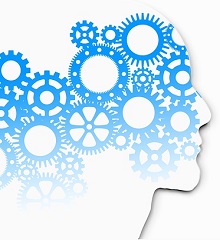Memory Problems After Meningitis
by Gill
(Scotland)
I am very lucky to be alive after nearly loosing my life to bacterial meningitis and septicaemia in 2008. I am now 46 yrs of age and wife and mum to 2 teens.

Loss of balance - I now use crytches and wheelchair for any distance; fatigue; migraines and visual disturbances - now being tested for Migraine associated vertigo and treated with anti-epileptic drugs.
Aside from the dizziness which is my most disabling and distressing symptom, I have found short and long term memory loss so so upsetting and frustrating.
Long term loss seem in "chunks" of time, but is slowly coming back to me. At first I couldn't remember the first years of my children's lives. It also is with certain processes - I used to be a primary school teacher and now find I can't remember how to subtract or divide.
These more long term losses just seem to be total blanks. Even if someone explains a process (also happens with things like tv remote control, using i player, etc.) If I don't write it down (I have sticky notes everywhere!) I can't do it even a few seconds later - I suppose this is short term loss.
Basically unless I write everything down, I can't seem to retain info at all. It is so frustrating not only for me but also everyone else, as I'm sure they think I haven't bothered to listen !
Even writing notes sometimes doesn't help as I will forget I have written them! I can be in middle of texting, get distracted then totally forget I hadn't sent it, in space of a few minutes. Faces I remember, but names often disappear - even my kids and friends - so upsetting.
I also find with speech that I can be halfway through a sentence and totally forget what I was saying, although this doesn't seem to be the case when I'm writing or typing on keyboard.
I would so love to retrain, study for leisure even but just have no concentration, short term recall - I even registered for this site and forgot I had done so and tried to do again the next day!!!
I was given an MRI scan re the dizziness, as think they were looking for an acoustic neuroma, but other than damage to inner ears (vestibular system) there seems to be no explanation for the memory problems - I also have ME/CFS 10 years plus and did have poor short term memory but not to this extent.
So I have arrived at this site and the linked luminosity website, via a book I read called "rebooting my brain". Although the author describes her experience after a brain haemorage,
I am feeling really hopeful that I can work on my "deficits" using theses brain training games and will let you know how I progress. Thank you for this wonderful site - I am also trying luminosity and for giving us hope to improve.
Doug's Reply. You certainly are facing incredible challenges following this bout with meningitis. As you said, it is a miracle and a blessing that you survived it. But that doesn't make the recovery any easier.
I know just what you mean when you say people think you haven't bothered to listen - when in fact you simply forgot. Memory problems make it difficult to maintain good relationships with anyone.
If you forget too many of the details of your friends' and family's lives, they may begin to think you don't care enough to pay attention to what they tell you. Of course, I'm sure that the people who know that you are recovering from meningitis are more understanding. But it still frustrating for them, and for you too.
I'm glad you are taking an optimistic approach to your recovery. Having the right attitude is half the battle, and cherishing every new day, no matter what it brings, is also a big part.
I encourage you to play the brain games as often as you can. And, most importantly, continue to consult with your neurologist and yoru other doctors.
If you haven't see it yet, you might want to also read the wonderful advice a visitor named Gwen posted on this thread about a Mother of Daughter with Short Term Memory Loss.
Scroll down to the comments section of that page. Gwen describes smart action steps for anyone dealing with memory loss. (She herself is recovering from a brain tumor and stroke.)
The steps Gwen gives include:
- Get neuropsych testing. This helps determine the strengths and weaknesses of your brain and your memory.
- Once you have the neuropsych test results, consult with a cognitive rehabilitation expert.
- Next, start using memory tools. The brain games are just one. Others that Gwen recommends include - write in a daily journal, carry a digital camera so you can take photos of the places you visit, write your daily schedule on index cards and carry them with you, and get into a local support group for people who have had a brain injury or brain disease.
Gill, thanks so much for sharing your story. I and all my visitors wish you the best of luck in your recovery. We will keep you in our thoughts and prayers.
Best regards,
Douglas
Memory-Improvement-Tips.com
This is information only. It is not medical advice, diagnosis, or treatment.
Comments for Memory Problems After Meningitis
|
||
|
||
|
Click here to add your own comments Join in and write your own page! Return to Share Your Memory Problems Story |

Newest / Popular
Multiplayer
Board Games
Card & Tile
Concentration
Math / Memory
Puzzles A-M
Puzzles N-Z
Time Mgmt
Word Games
- Retro Flash -
Also:
Bubble Pop
• Solitaire
• Tetris
Checkers
• Mahjong Tiles
•Typing
No sign-up or log-in needed. Just go to a game page and start playing! ![]()
Free Printable Puzzles:
Sudoku • Crosswords • Word Search







